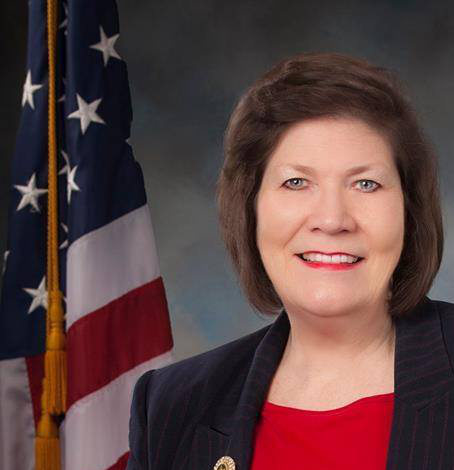Oklahoma Education after Common Core - Where are we now?
By Linda Murphy
Oklahoma is in the desirable position of being able to shape our education system into an excellent locally controlled, highly successful system. Education is being closely watched by people across the state as we discuss, debate and decide what our new Oklahoma State Standards, testing and curriculum for K-12th grade will become when they are finished in 2016.A large majority of our legislators, backed by Oklahomans across the state, passed HB 3399 last spring rejecting Common Core and the "top-down" control of education by the money-backed outside influence behind it. While the "wheels are coming off" the Common Core bus nationwide, we got out ahead of the crash.
Unfortunately a handful of nationally connected Oklahomans are still working to put a public-private centrally controlled system in place, which would directly affect the lives of our children. Most of the pressure to centralize the control of K-12th grade education is coming from U.S. Chamber of Commerce connected individuals and global corporations who try to drive Oklahoma's education agenda for their own financial gain.
This small but powerful and well-financed group is still pushing their plans for K-12th grade schools to "train the workforce" for what they say, in error, is the key to "growing the economy."
Common Core State Standards (CCSS) were originally mandated by a 2010 state law and were to be fully implemented in 2014, this fall. In June, 2014 Oklahoma became the first state in the nation to thoroughly repeal Common Core. HB 3399 not only removed CCSS standards, but also removed Common Core testing, and defined a writing process where we develop our own new standards. The standards will end up under the final approval or disapproval of our elected legislators.
Following Governor Fallin's signature on HB 3399 in June, a lawsuit was filed. The authority of the legislators to oversee education through HB 3399 was challenged by Fallin's appointed state school board members (excluding board members Price and Franks who did not sign on to the lawsuit). The State Supreme Court quickly ruled in favor of the legislators because our state constitution is very clear regarding the power of the legislature and the limited power of the state school board. Governor Fallin is now reaching for more power to be shifted to her office from the State Superintendent, who is elected by the people to be over education. The Governor already has shifted a tremendous amount of power by appointing the state school board and expanding the authority of the Secretary of Education, the Office of Education Quality and Accountability and the Teacher Preparation Commission along with the Office of Management and Enterprise Services, which approves education (and all other state) contracts.
The Oklahoma House of Representatives Committee on Education, chaired by Representative Ann Coody, on Wednesday October 1st, started a series of studies that continued on October 8th, 14th and 15th. The studies were grouped together under the title "After Common Core -- What Next?"
I participated in the study requested by Representative David Brumbaugh, which was the first study in the series. He focused on providing a solution for testing, which would test students only at the end of the school year for a brief period of time. The test he recommended could also be ready in time for those who need to take the Winter test this year. The study was very timely since we need to replace the Common Core tests, which were previously contracted and one of Oklahoma's previous test vendors McGraw-Hill had just withdrawn from the process of contracting for the Winter test a couple of days prior to the study.
Brumbaugh's recommendation was to use Iowa Test of Basic Skills (ITBS) from Riverside Publishing Company, which could be given either with pencil and paper or online. The ITBS, in addition to being a research based norm referenced test, can also be delivered "customized" with Oklahoma's 2010 PASS (Priority Academic Student Skills Standards) included as test items and still at half the cost of other tests. Oklahoma owns 2010 PASS test items in a "bank" from past testing, which has already been paid for by the taxpayers. (HB 3399 made Oklahoma's 2010 PASS the standards to be used in K-12th grade until our "new" standards are completed in 2016.)
Following Representative Brumbaugh, the ITBS Riverside test consultant presented a slide show about the detailed student performance reports that are delivered to teachers and parents. The reports give information on each student's strengths and weakness along with student "growth" measurements.
Educators support a test which will save classroom time by testing just once. ITBS also provides the required scores for reporting to the Federal Department of Education in compliance with No Child Left Behind (NCLB). Testing is also now tied to "teacher performance" which is evaluated in a rigid process and teachers' jobs depend on how much the students learn as measured by how they perform on the state tests. Common sense alone shows us that losing time needed for teaching and learning because of testing for days and days is defeating our purpose.
My presentation, which concluded the study, was focused on looking at the overall situation of state testing and at what type of testing we are doing. I pointed out that we must answer the questions: "What are we Testing?" and "Why are we Testing?"
One reason we are testing is to comply with NCLB and I agreed with legislators who had, in an earlier study, expressed their desire to see Oklahoma oppose NCLB. I said that we should only be testing to benefit the student directly. Information from tests can be helpful and should only be used for teachers, parents and students to know areas where students are achieving the goals set for them and where they still need to do further work. Tests are only one of the many tools that good teachers use in designing instruction for individual students and classes. Through state and federal mandates, tests have become coercive compliance tools for the "social engineering" of public education.
I presented a description of the difference between traditional testing and the Common Core type of testing, which is now prohibited from use in Oklahoma's state tests, after the passage of HB 3399. Common Core tests are not just traditional academic tests but include an expansion into the area educators call the "Affective Domain." For over 50 years, Dr. Benjamin Bloom's Taxonomy of the Cognitive and Affective Domain has been used by teachers as a system to classify the objectives, goals or standards set for students.
The Cognitive Domain includes the academic area covering facts, knowledge and information which are used in traditional teaching or testing. The Affective Domain is the area of emotions, feelings, attitudes, values and beliefs of students and has never been legal in America for use in testing or training ALL students. ONLY students in special education who have behavioral problems and ONLY after parents have given their consent were students tested and taught with goals in the "Afffective Domain."
Common Core and other tests of that type, when given to ALL students, cross over safeguards by measuring "Affective" responses. The responses of students taking these tests online then become a part of the data that is collected and stored through the State Longitudinal Data System which every state now has established under President Obama's stimulus funding. Student test data is being sought by state and federal agencies, marketing firms and corporations. The type of test and testing vendor chosen will affect what type of information is collected and what happens to the information.
I stated the fact that at that time (October 1st) Oklahoma still had a contract with a testing vendor for Common Core testing although the new law required it to be cancelled. That vendor is Measured Progress. The contract is for 34.45 million dollars for 1 year of testing 3-8th graders with an agreement to extend it to 5 years after a yearly vote of approval by the State School Board.
On Tuesday, October 14th, I gave a second presentation "Common Core and the Rewriting of Standards" in a study requested by Representative Joe Dorman and chaired by Representative Coody. The focus was on what Common Core is and why we should avoid putting it back into Oklahoma's new state standards. Here are some of the points made:
- The legal ownership of Common Core State Standards belongs to the National Governors Association and Council of Chief State School Officers through a copyright, which requires any disputes to be handled in a Washington D.C. court.
- States can add no more than 15% to the Common Core State Standards.
- Global Corporations have funded the development, marketing and implementation of Common Core with millions of dollars.
- There are developmentally inappropriate standards for younger students with concepts and processes that are mentally on a level too high for their age.
- Higher levels of math in upper grades are cut out of the standards and students are not prepared for challenging university level math according to a writer of Common Core Math Standards.
- Math processes are taught with lengthy steps instead of quick calculations.
- English Language Arts standards have 50% of literature cut out of reading in lower elementary and 70% in high school, replacing it with institutional or industrial style reading material.
- The philosophy of Common Core is to create a system that produces equal results for all students instead of equal opportunity to learn to the best of their individual ability.
- Common Core is not just standards. The standards are not implemented in a vacuum but are aligned to common core tests and common core curriculum which must be used to make sure that students pass the tests which must be passed.
- Oklahoma's PASS Standards in 2008 were approved as "College and Career Ready" by ACHIEVE in a report to the National Governors Association.
I told the committee that the Teacher Leader Evaluation (TLE) model being used in Oklahoma is also based on Common Core. It is certain that we need further legislation to get our teacher training, teacher evaluation and administrator (leader) evaluation processes in line with the changes brought through HB 3399. We should not allow the same philosophy and outside influences behind Common Core to control the educators who work directly with our children. We need state and local control of the entire education system.
There are several vendors delivering products and services in Oklahoma schools which are Common Core aligned with "Affective" goals including:
- ACT, the college entrance test used statewide; Pearson Global Corporation is now a partner with ACT and this spring ACT will be Common Core.
- Marzano Model Teacher-Leader Evaluation, Dr. Robert Marzano's Model for teacher-leader evaluation and training being implemented through the State Department of Education (SDE); A Marzano representative speaking at the Oklahoma TLE Commission acknowledged the model is Common Core.
- AIR (American Institute for Research), AIR specializes in behavioral research, testing and training; AIR is contracted by the SDE for teacher-leader evaluation and training as approved by Office of Management and Enterprise Services in June 2014.
- McREL, Mid Continent Research for Education and Learning, formerly McREL Mid Continent Research in Education Laboratory of the Federal Department of Education, now a non-profit organization; It is now implementing teacher training and principal evaluations as agreed and approved by the Federal Department of Education.
- Measured Progress, works directly with McREL and produces Common Core testing; It was further described above and is still contracted as of the writing of this article.
I appreciated the opportunity to present some information and further understanding to the legislators, educators, higher education staff, Governor's office staff, Secretary of State, Chamber of Commerce representatives, education organizations and others who attended. We must continue the ongoing discussions and debates about the details involved in stabilizing and insuring that Oklahoma education is excellent and locally controlled.
For more information about Oklahoma education and to hear the audio tapes from the House Education Committee presentations go to: www.oklahomaeducator.com










Latest Commentary
Thursday 30th of October 2025
Thursday 30th of October 2025
Thursday 30th of October 2025
Thursday 30th of October 2025
Thursday 30th of October 2025
Thursday 30th of October 2025
Thursday 30th of October 2025
Thursday 30th of October 2025
Thursday 30th of October 2025